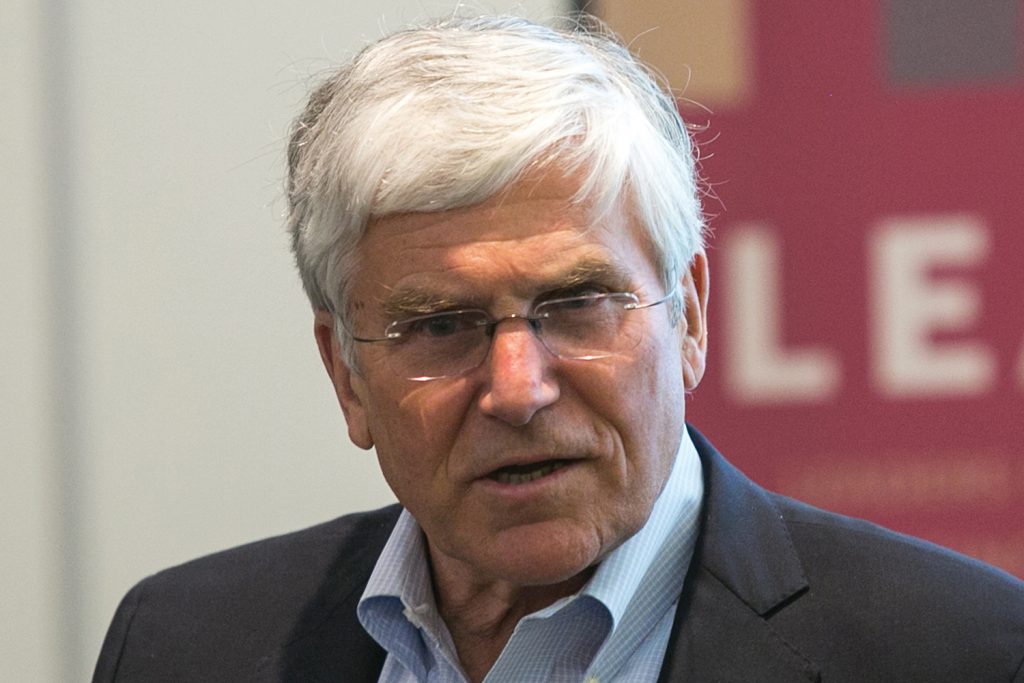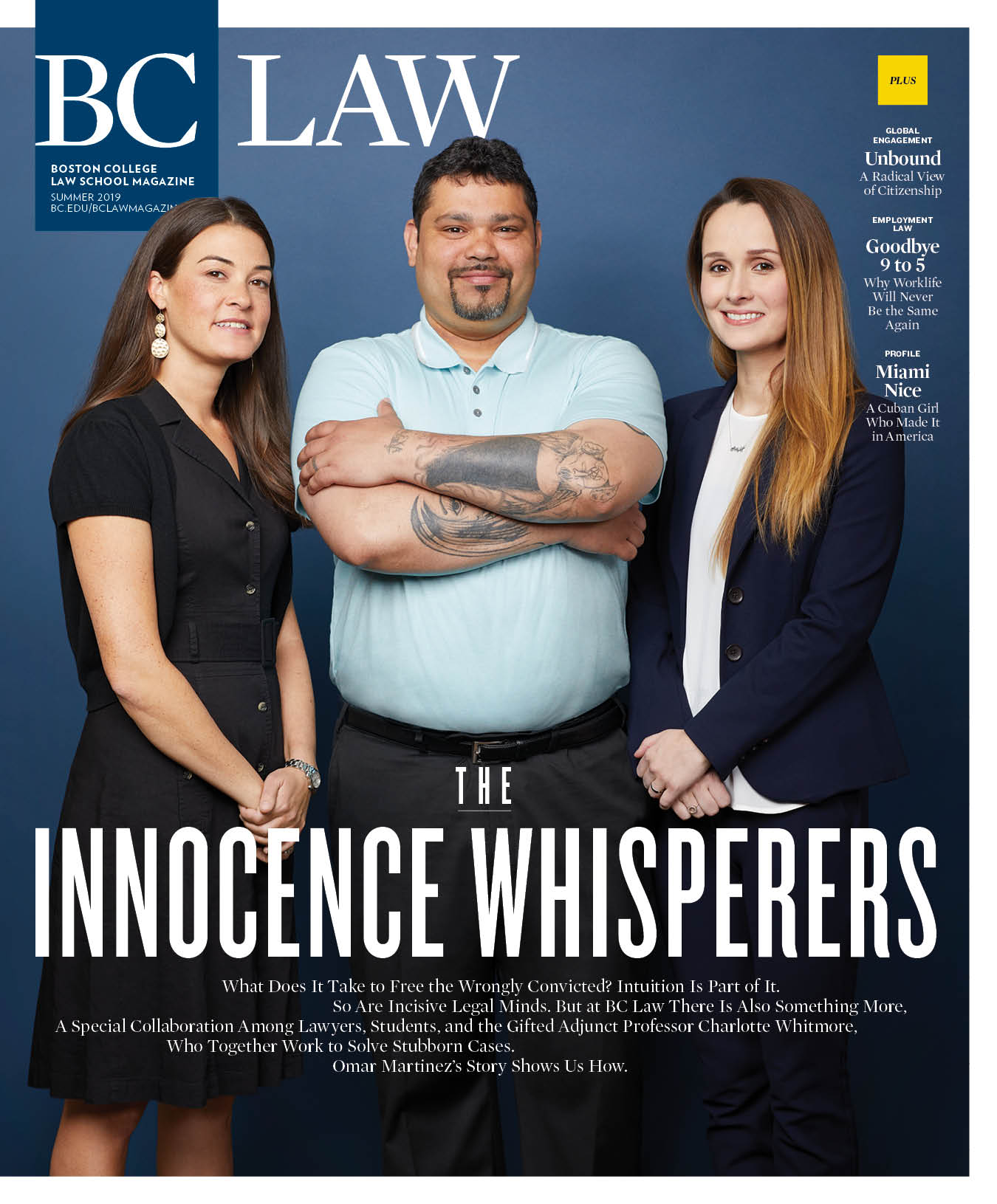Throughout four decades in uniform, four-star General George W. Casey Jr. (Ret.) led troops in Bosnia during Operation Joint Endeavor, commanded a thirty-nation coalition during the most difficult years of the Iraq War, and oversaw more than 1 million soldiers as chief of staff of the US Army. The experience left him uniquely qualified to give his lecture, “Civil-Military Relations: From the Constitution to the War on Terror” at BC Law last April.
“The relationship between a democratic society and its military is extremely important for the long-term health of the state but it needs to be cultivated,” he said. “It’s not something we can take for granted.”
Blending constitutional law, military history, experiences with senior administration and military officials, and self-effacing humor, Casey provided a dissertation that included two case studies illustrating the competing dynamics that regularly play out between civilian officials and military leaders: World War II and the first year of the Obama Administration as it grappled with troop levels and strategy in Afghanistan.
“The relationship between a democratic society and its military is extremely important for the long-term health of the state but it needs to be cultivated. It’s not something we can take for granted.” —General George W. Casey Jr. (Ret.)
Casey highlighted successful interactions among President Franklin Roosevelt, his military commanders in Washington and the European theater, and allied leaders like Winston Churchill, to demonstrate how high-level civil-military relations is supposed to work. “General Marshall understood that in a democracy, presidents need victories,” he said, praising Marshall’s ability to keep military dissent private. “Politics is always a factor, but not the factor in every decision to commit the military.”
Next, Casey shifted the discussion to the war in Afghanistan and the difficulties of managing civil-military relations in what he termed the Media Age. Guiding the audience through the issues facing the early Obama Administration in Afghanistan, Casey described how the outsized media profiles of some military leaders, and several instances of public criticism of strategic and manning decisions, made an already difficult combat mission even tougher.
“It’s a lot harder to get things done today and have intelligent private discussions,” he said, adding that military dissent needs to happen but needs to remain private. “I’ve never been rebuked by a civilian leader for telling them what I thought. People only get in trouble when they do it in public before telling the President.”
The event was co-sponsored by BC Law’s Leaders Advancing and Entering Public Service (LEAPS) and the Student Veterans Association.



